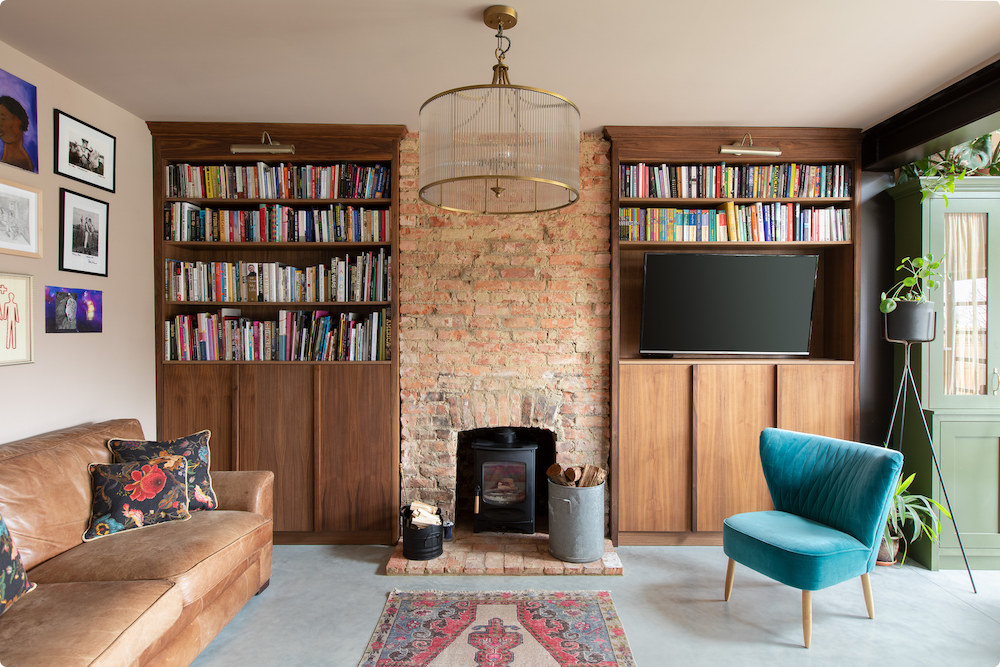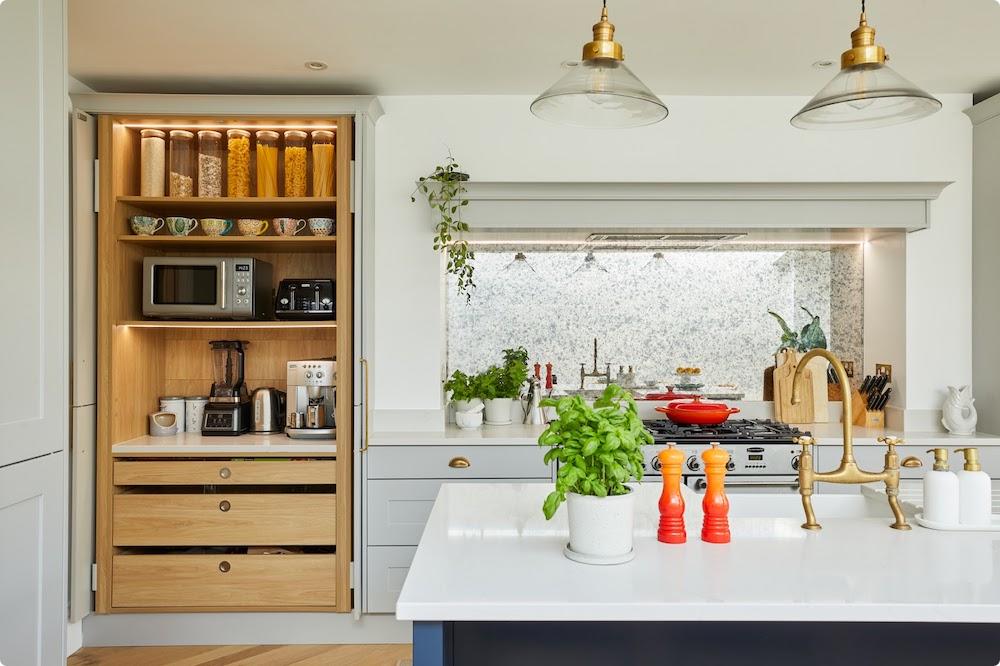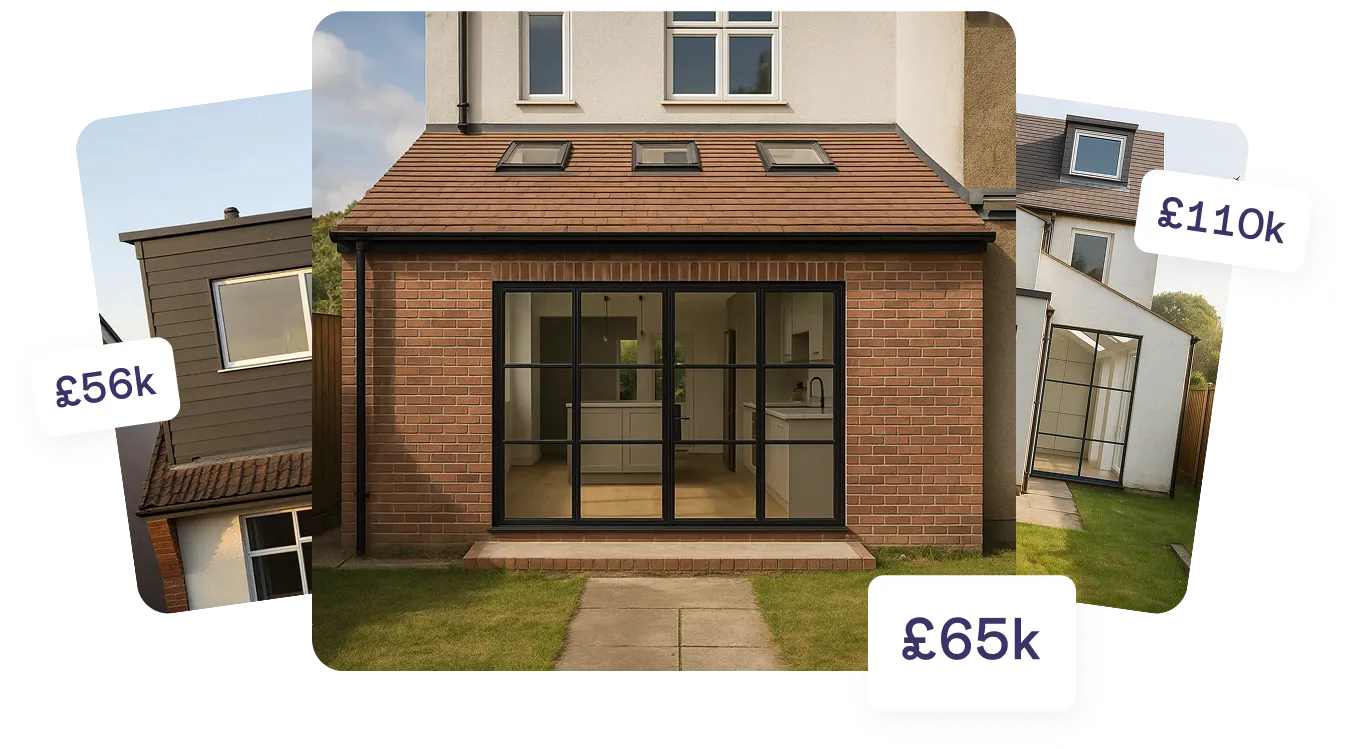Just how obsessed with ‘tidy house, tidy mind’ are we?
This rise and rise of cleaning-related content spiked during the pandemic when people were marooned. Taffeta revealed that the hashtag #cleaningtok had been viewed over 3 billion (!) times in 2021. While we don’t have official data to follow up that number, we can assume that it’s only risen. Perhaps this is no surprise – the longer we’re at home, the more the tidiness of our home is likely to be on our mind. But does tidiness really have the ability to soothe us?
We carried out a survey of over 2000 people all around the UK and found that the people who describe their homes as organised tend to be more likely to report being happy at home. On the other side of the coin, those that recorded being most stressed by their homes pointed to a lack of storage. This suggests that in order to feel happiest at home, we need to ensure we have tidy spaces.

So, how do we achieve ‘tidy house, tidy mind’?
As the findings of our Happy Home Report suggest, and society’s obsession with viral cleaning content on social media reveal, it’s really important for our wellbeing that our homes are tamed into tidiness for us to feel content in them. There are numerous ways to achieve tidiness and everyone has a different tolerance to mess. With this in mind, we suggest some of our easiest ways to achieve tidiness in the home.
Adaptable spaces
If your home isn’t large enough to have a dedicated space for everything and getting creative with the space to serve a range of purposes is a staple part of your day to day, there are still ways that you can preserve a sense of order and calm. For example, if you have a bedroom that doubles up as a home office, you can make simple changes like opting for furniture with subtle storage like a dresser with slim drawers to tuck your laptop into at the end of a long day. This oak desk/dresser from Ellis Home Interiors is a great example of how to achieve sleek, effortless organisation in spaces that are required to serve more than one person.
If you have little ones in your home, it’s likely that every available space in your home essentially has a dual purpose as a nursery – especially once they learn to run around! We’re not suggesting for a moment that achieving a true sense of tidiness is achievable in the early years but there are great, practical items of furniture that can help towards the cause. IKEA’s deep, plastic drawers are perfect for scooping up and tucking away the debris of the day’s play before it’s summoned again tomorrow. Or, if you’re looking for something a little more aesthetic to store away toys for when you have friends around, we’d suggest a natural-look wooden trunk from Maisons du Monde.

© Matt Gamble
In-built storage
Benedita Viega, Resi’s very own Associate Studio Manager, tells us: “We all have mess. We can try to be as tidy as possible but there will always be times that life gets busy and our homes become untidy. Consider having large cupboards built into your home that are big enough to store utilities like your washing machine, dryer and hanging space. Being able to dedicate a space specifically for practical tasks and be able to shut the doors at the end of the day makes it so much easier to unwind at home.”
As well as tucking away the less sexy-looking utilities that help to run a home, an organised kitchen can create a tidy feel as well as improving the ease with which you can navigate everyday cooking. This can be particularly useful if you’re juggling work, other family member’s schedules and are hoping for just a little bit of time to yourself in the evening. A beautiful example of how this can be achieved can be found at this completed Resi project pictured below in Tooting. The cupboards are polished, organised and illuminated for the ultimate ease of use.
 © Chris Snook
© Chris Snook
To learn more about how our architects and designers can help you transform your space to keep the everyday mess of life at bay, book a free call with one of our knowledgeable consultants.




 © Chris Snook
© Chris Snook


